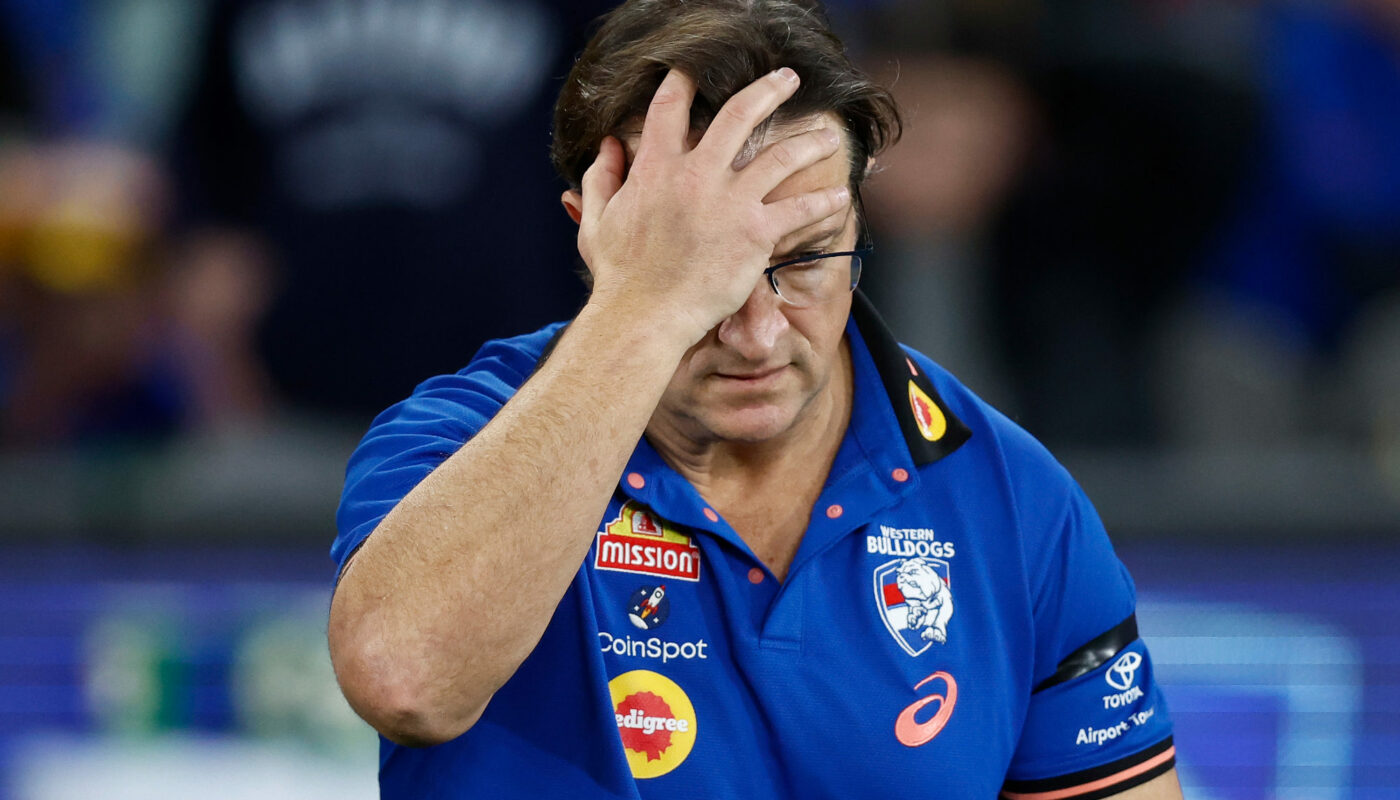Out-of-contract Smith is not a free agent and would have to force a trade, with Geelong, Hawthorn and Collingwood among the clubs linked to the high-profile ball-winner while he has been sidelined with a knee injury this season.
Beveridge said he maintains a strong relationship with Smith and doesn’t feel the need to “force” an early decision out of the 23-year-old, who has played 103 games for the Bulldogs.
“There’s just too much to play out still at the end of the year, whenever that may be, and sometimes there’s just no certainty from the other end,” Beveridge said on Friday.
“Players might have more than one option and they’re considering things
“I don’t think players are necessarily in a position to tell their club if they are moving, but when a player hasn’t told you that he’s staying, then as time goes on your confidence levels start to wane a little bit.”
Beveridge was buoyed this week by No.1 ruckman Tim English signing a new five-year deal with the Bulldogs, tying him to the club until the end of 2029.
West Australian product English had attracted significant interest from West Coast, with Beveridge taking satisfaction out of the 27-year-old’s decision to knock back a “pretty extreme deal” in favour of staying at Whitten Oval.
But the 2016 premiership coach added “contract commitments are as tenuous and as rubbery as they ever have been”, claiming player managers and management groups had seized too much power in the market.
“There’s no doubt that over a period of time the managers have been able to position their players in certain directions and make certain choices,” Beveridge said.
I think in a situation where you’ve got dominant player agent stables it’s not a free market – it’s controlled because there’s not enough dispersion of players through multiple managers in the industry.
“It’s become that way because ultimately when managers have got their own patch and their own portfolio of players, you’ve got to place them to maximise that portfolio as much as do the best for the player.



Leave a Reply